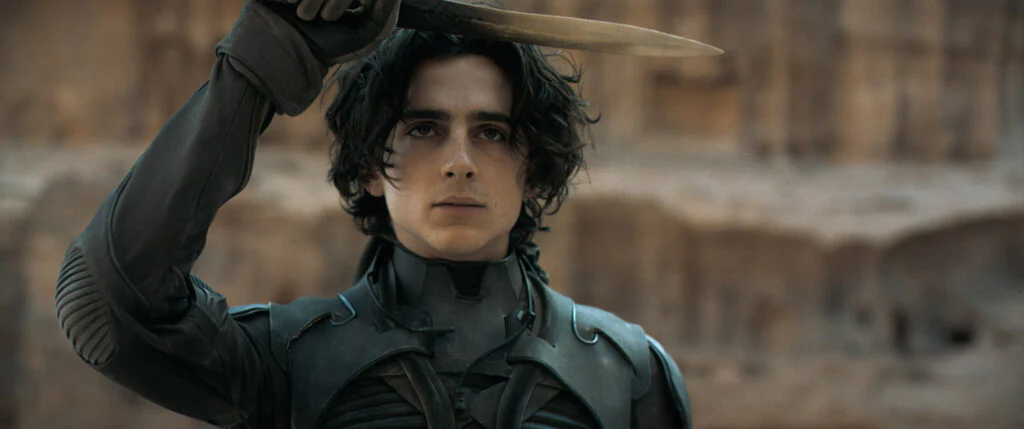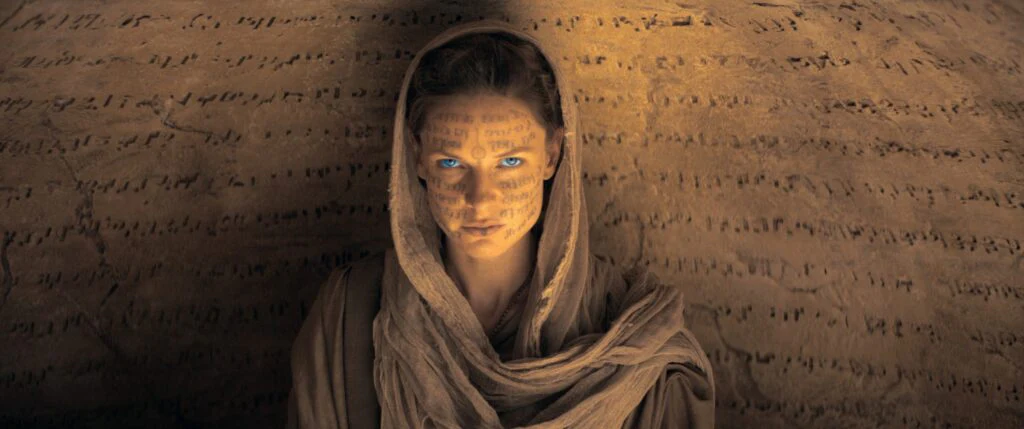Denis Villeneuve has long expressed a desire to adapt Frank Herbert’s seminal 1965 science fiction novel Dune to the big screen, and to be quite honest, he may have been one of the only filmmakers who could’ve possibly done it.
Villeneuve is currently one of the best modern directors, having helmed thrillers like Prisoners, Enemy and Sicario, but it wasn’t until his 2017 sci-fi film Arrival (which nabbed him eight Oscar nominations) followed by the staggeringly awe-inspiring Blade Runner 2049 the following year (which took home two Oscars) that he truly established himself as a force to be reckoned with.
Villeneuve’s penchant for balancing massive large-scale productions and existential stories with deeply personal and emotional arcs for the characters lends itself perfectly to something like Dune, which is incredibly dense with exposition and explanations of the vast and complex universe it takes place in while also heavily layering itself with themes of religion, politics, and the human mind.
While many book adaptations struggle with stuffing as much of the source material as possible into a limited runtime, Villeneuve thankfully has given the film a surprising amount of breathing room, splitting the novel into two parts (with part two arriving in 2023) and allowing for quieter, more contemplative moments to exist alongside the enormous set pieces and extensive world-building.
Something like Dune - which has continued to expand its already sizable mythos and characters and history throughout the decades - can seem daunting for casual moviegoers, but the film does an impressive job of both keeping things easy to follow (even for total newcomers to the franchise like myself) and making all of that exposition actually interesting.
Dune sometimes is described as a cross between the space fantasy of Star Wars and the royal family drama of Game of Thrones, and it’s a relatively apt comparison. It’s a sprawling epic with lots of terms and important people to keep track of, huge battles and literal magic. It’s...real fucking nerdy, but oh so awesome.

Courtesy of Warner Bros
To try and keep things as simple as possible, this first film takes place thousands of years in the future, where a portion of the universe is ruled by a vicious empire and several royal Houses that serve under it. A young man named Paul (Timothée Chalamet) is the heir to House Atreides, which the empire has tasked with taking charge of the desert planet Arrakis. Arrakis is the home to spice, one of the most valuable things in the galaxy due to it being needed for interstellar travel.
The empire has long been plundering the planet for its resources and killing the native population known as the Fremen, a practice that Paul’s father, Duke Leto (Oscar Isaac) wants to put an end to and instead form an alliance with the Fremen. But House Atreides has their work cut out for them, not simply from the extremely harsh conditions of the planet, but also from sabotage by rival House Harkonnen, who Josh Brolin (playing weapons master Gurney Halleck) informs us are BRUTAL. All the while, Paul has been having strange visions and dreams of a young Fremen woman (Zendaya) and glimpses of future events.
Dune (or Dune: Part One as the title screen tells us) is a long movie. At almost two hours and forty minutes, and packed with airy and constant dream sequences, it can threaten to get boring were it not for brilliant performances from the cast and mesmerizing imagery from cinematographer Greig Frasier (Rogue One, Zero Dark Thirty) and production designer Patrice Vermette (Sicario, Arrival).
But the true MVP here is Hans Zimmer, whose usual booming score is accompanied by subtle electronics, otherworldly desert ambience (interpret that however you’d like) and transcendent bursts of horns, bagpipes, and immense vocals. It’s undoubtedly one of the longtime and legendary composer’s best and most inspired work yet.

Courtesy of Warner Bros
The film’s most impressive sequences involve an intense encounter with a massive sand worm and a shocking turn of events at the film’s halfway mark, both of which showcase Villeneuve’s skill at staging large scale action in a way that feels captivating rather than chaotic or rote like other, more forgettable blockbusters. It’s also quite refreshingly an adventure between a son and his mother.
Rebecca Ferguson plays Lady Jessica, Paul’s mother who is skilled in witchcraft-like abilities, and it’s the most engaging performance of a film stuffed with other stars. It’s impressive how, in a film where much of the dialogue is in-universe jargon, so much is said just through the actors’ eyes and understanding of that jargon; it’s almost Shakespearean in a sense like other notable sci-fi and fantasy series.
Dune’s first half is a bit better than its second, which begins to suffer from overuse of its visions of the future (which regrettably come off as teases of potential sequels half the time thanks to the current movie landscape) and questionable optics regarding its themes. Paul’s role can veer close to a white savior narrative, although this may be the result of the film only being the first part of a larger story that potentially examines that and turns it on its head later down the line.
Dune is constantly captivating and everything from its big moments to its small details feels unique and just as impressive as a Star Wars or a Lord of the Rings, with the potential for it to only grow grander and greater. With part two now officially underway, it may do just that.
‘Dune’ is now playing in theaters and streaming on HBO Max throughout most of November.




